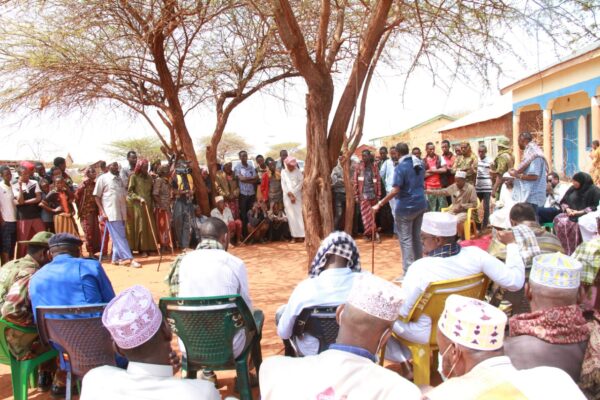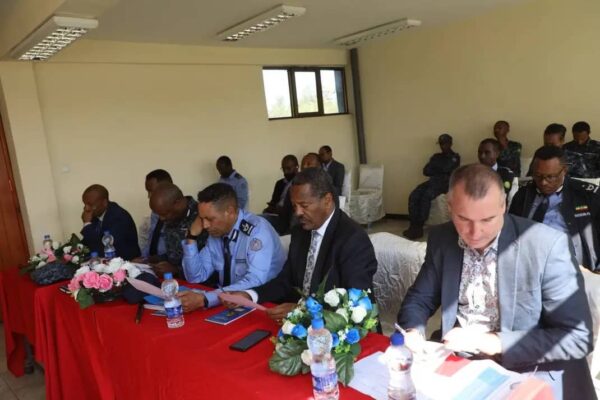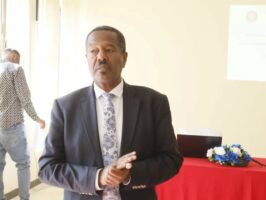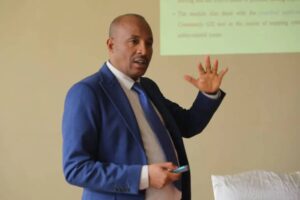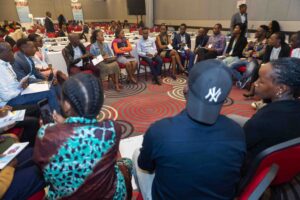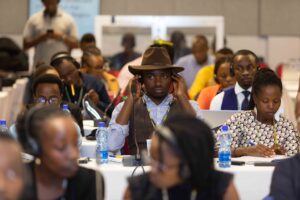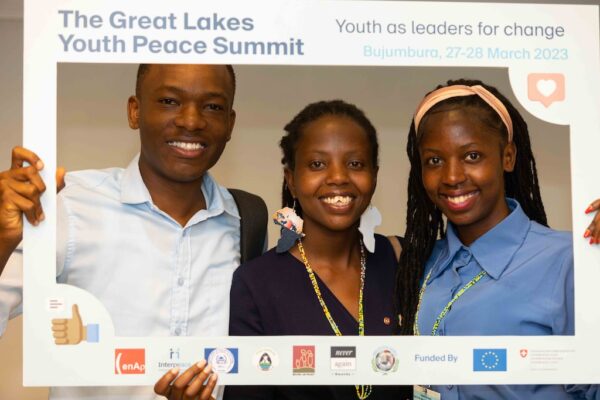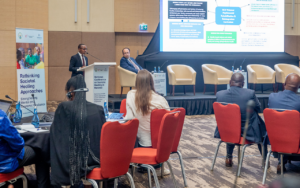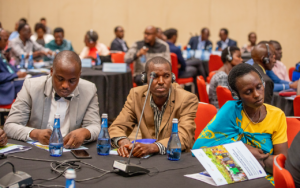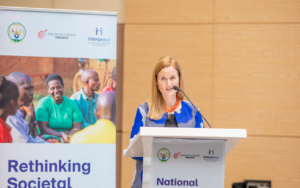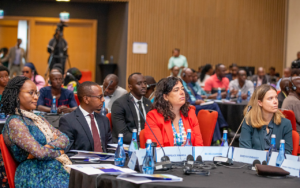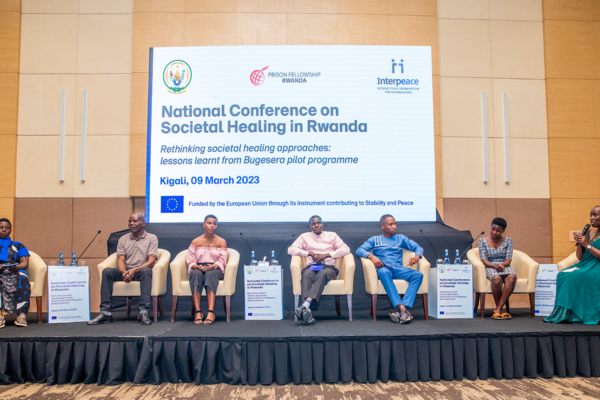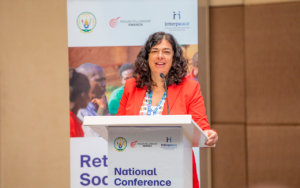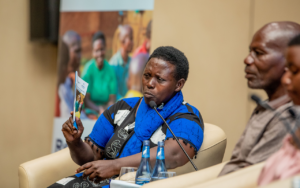Towards a Global Peace Bond Market: Establishment of Peace Finance Standards Committee and Peace Finance Impact Framework
Finance for Peace, the leading global initiative dedicated to creating norms, standards, research and knowledge to promote investment approaches aimed at fostering peace, is excited to announce the launch of a call for expressions of interest for its Peace Finance Standards Committee (the Standards Committee). The Standards Committee will play a crucial role in developing and promoting Peace Bond Standards as well as Peace Equity Standards that will enable finance to make a positive impact on peace.
“This is a win-win for the finance and peace sectors. We have the best possible finance sector advisors supporting us, growing government support, and we are creating a step-change towards better financial returns and peace outcomes. This initiative is an innovative solution: it brings together private finance and peace at a time when conflicts are on the rise and traditional sources of funding for peace are not meeting the need”, said Simon Gimson, Acting President of Interpeace.
“Peace is a global public good. The aim of the Peace Finance Impact Framework and the Peace Finance Standard is to support and scale more responsible and peace-enhancing investment by the finance sector. And we are now creating a Standards Committee to ensure that the Peace Finance Standard remains internationally credible, evolves with the finance sector’s needs, stands the test of time, and works for both the finance sector and peacebuilders”, Mr Gimson said.
Fiona Reynolds, Strategic Advisor to Finance for Peace, said: "We are thrilled to launch this call for expressions of interest for our Standards Committee, alongside version 2 of the Peace Finance Impact Framework. By assembling a diverse group of accomplished professionals, we aim to develop robust standards that will inspire the integration of peace and peacebuilding principles into financial investment.”
The Standards Committee will bring together accomplished professionals with diverse expertise in finance, investment, sustainability, development and peacebuilding. The Committee will play a crucial role as part of the Finance for Peace initiative, guiding the development of comprehensive Peace Bond and Equity Standards that will promote and create the conditions where capital works for more peaceful, just and fair outcomes.
The call for expressions of interest invites individuals who are passionate about leveraging the power of finance to foster peace to apply for a position on the Standards Committee. Successful candidates will possess an understanding of the intersection between business, investment, development and peacebuilding, along with a track record of exemplary leadership in their respective field. Interested individuals are invited to review the eligibility criteria and application process. The deadline for submitting expressions of interest is 30 August 2023.
The Standards Committee will be composed of an equal mix of representatives from various fields, including the finance and investment sector, as well as the development, peacebuilding and academic fields.
The Standards Committee will iterate, improve and provide strategic advice on the Peace Finance Impact Framework (PFIF) as well as the Peace Finance Standard (PFS) which have been updated to version 2, available here.
Peace Finance Impact Framework and Peace Finance Standard
The Peace Finance Impact Framework and Peace Finance Standard have been developed in collaboration with a wide range of stakeholders from private finance, banking, development finance, impact investment, civil society as well as peacebuilding and development sectors.
The PFIF is a voluntary framework that guides government donors, development finance institutions, private asset managers, banks, and investors as well as peace actors on how investment approaches can realise rigorous and benchmarked peace impacts. By doing so, PFIF-aligned investments can lower risks for investors as well as communities.
The PFIF sets out international best practice for labelling Peace Bonds and Peace Equity investments through a self-certification scheme called the Peace Finance Standard (PFS). The framework describes basic exclusionary criteria, a proposed process and partnership model of how investors can plan, implement, measure and verify peace impacts.
In addition, it suggests an intervention logic of how investors may generate additionality and better outcomes for communities. The PFS and PFIF help investors lower risks for both communities and investees by implementing peace and investment strategies that are better sensitised to political and social risks while also building greater trust, buy-in and certainty through more inclusive investment approaches.
The ongoing updating and strengthening of the PFIF and PFS is a collaborative effort that aims to ensure the framework aligns with the needs and aspirations of the finance, investment and peacebuilding sectors. It builds on significant mapping research that has been conducted by Finance for Peace and various other partners on the existing gaps in current investment frameworks and due diligence frameworks for investing in emerging and frontier markets.
The PFIF (version 2 is available here) is based on version 1 (available here) which was developed in September 2022 after several rounds of feedback and consultation with experts in sustainable investment, finance, peacebuilding, development and academia, and which was published after being presented during the Investing for Peace Conference in Berlin as part of Germany’s G7 Presidency in September 2022.
Further information
Why Peace Finance is needed and why new standards are critical
Currently, 1.8 billion people, almost a quarter of the world’s population, live in 57 fragile and conflict affected countries which are not meeting the Sustainable Development Goals, largely because of ongoing instability, violence and conflict.
Investment into these places is at a ten-year low and existing blended finance approaches are currently not bridging the gap. Feeding into this are poor market perceptions and evidence of systemic mispricing of risks which suppress the supply of scaled and bankable investments in fragile low-income settings. At the same time, there is broad evidence of private and public investment exacerbating conflict dynamics and failing to mitigate risks for investees and communities. Underpinning all this is a significant lack of fit-for-purpose market frameworks, guidance and incentives for public and private investors to help them proactively engage and properly mitigate risks in fragile and conflict affected settings.
There is a drastic need for new investing approaches that lower risks for communities as well as investors so capital can better work for peace. But this cannot happen without standards and benchmarks for peace impact that are trusted, rigorous and have wide stakeholder buy-in.
About Finance for Peace
Finance for Peace operates as a multistakeholder initiative incubated by Interpeace, a leading international organisation for peacebuilding headquartered in Geneva. Finance for Peace seeks to make systemic change in how investment supports peace in the world’s developing and fragile places through developing standards for peace finance, market intelligence, and new partnerships that can scale new peace finance approaches.
Peace Finance Standards Committee expressions of interest and terms of reference
